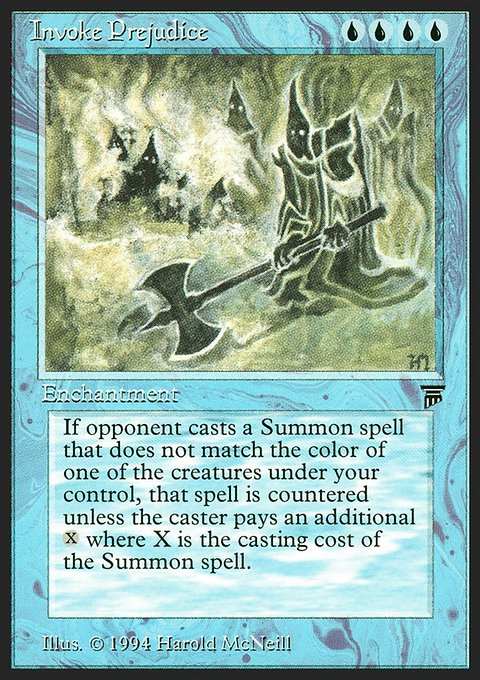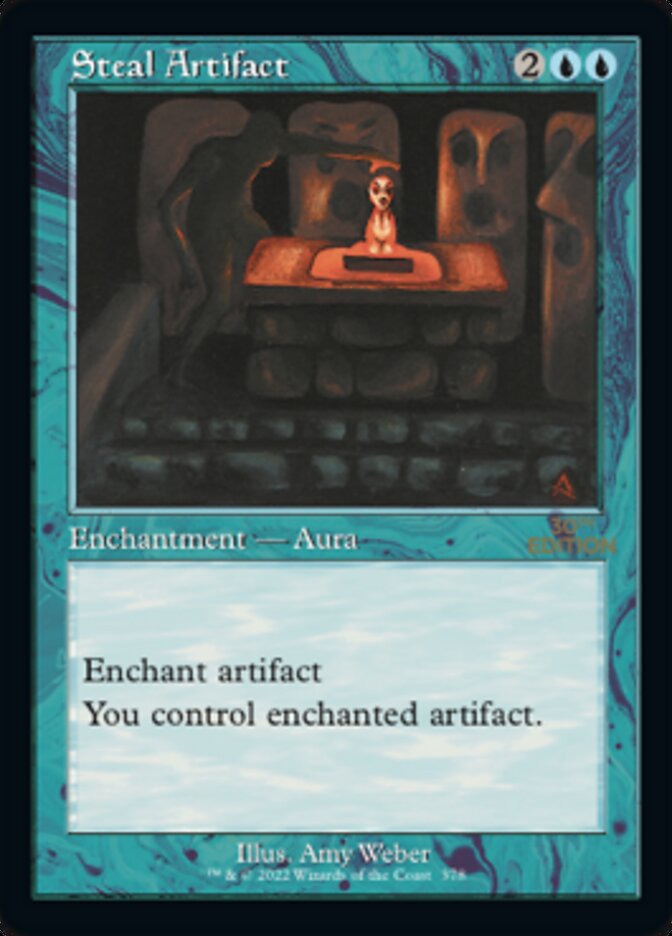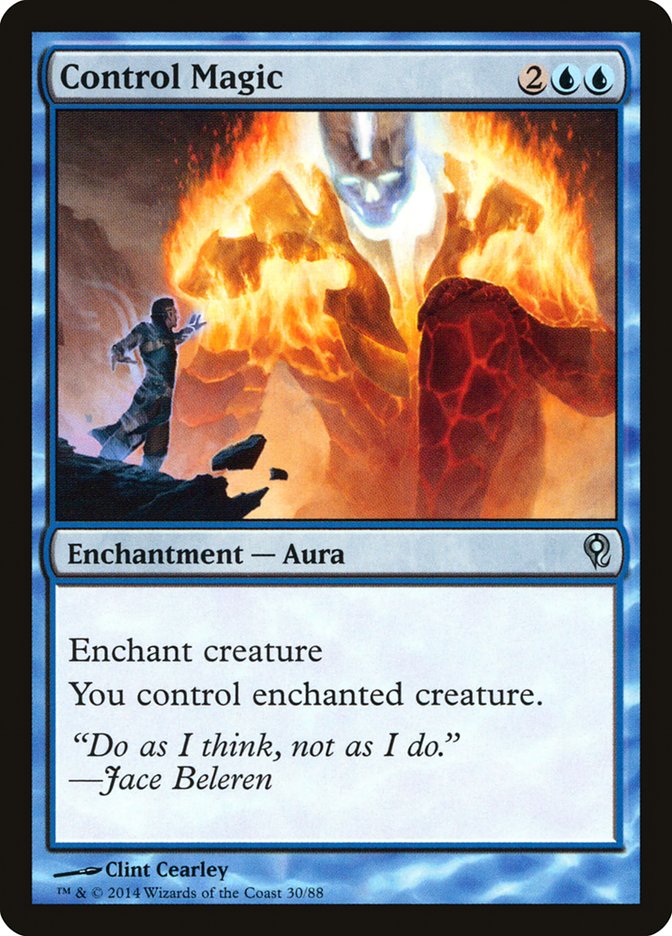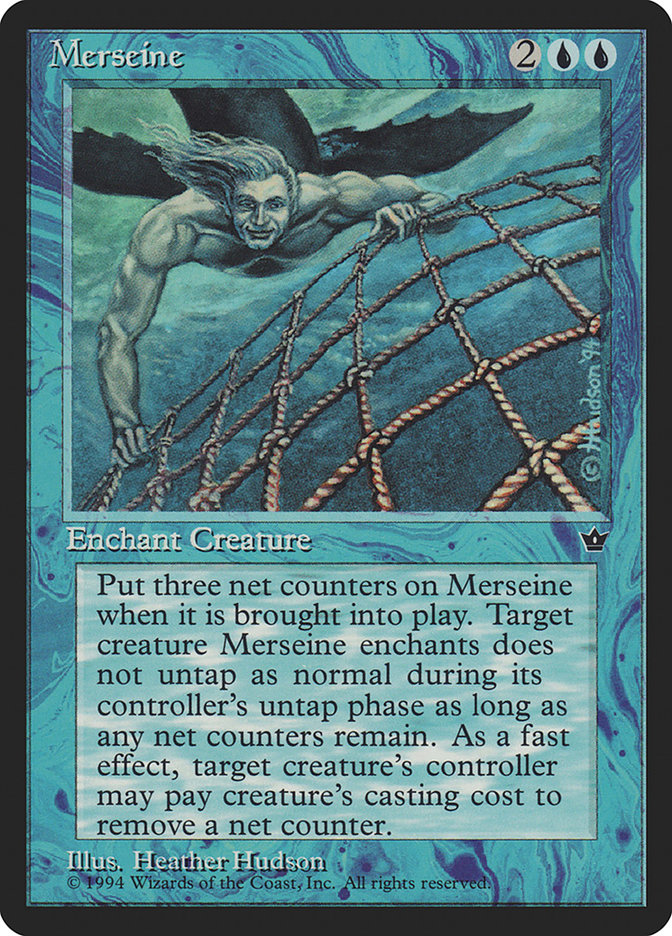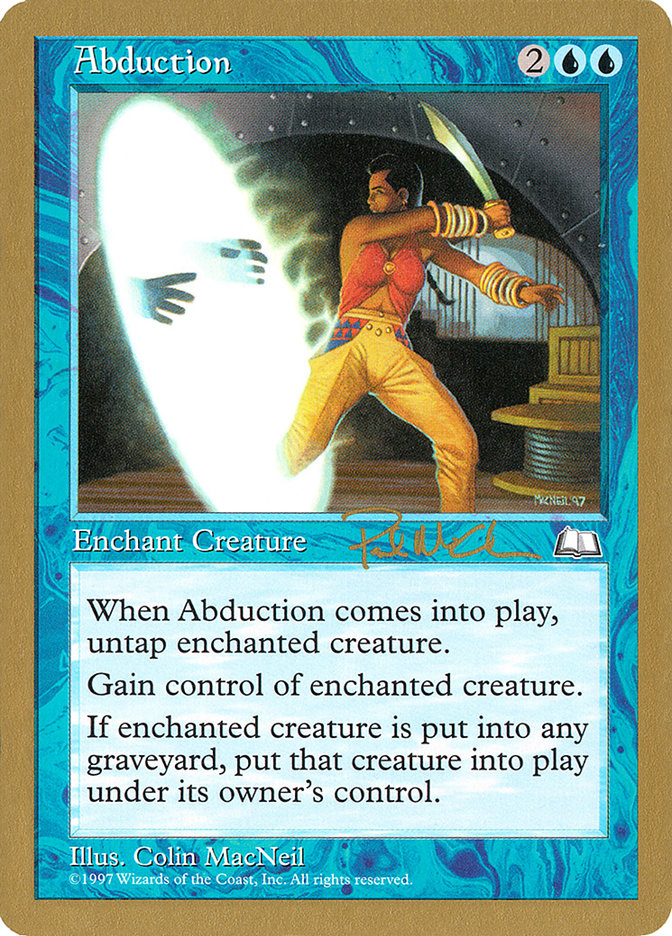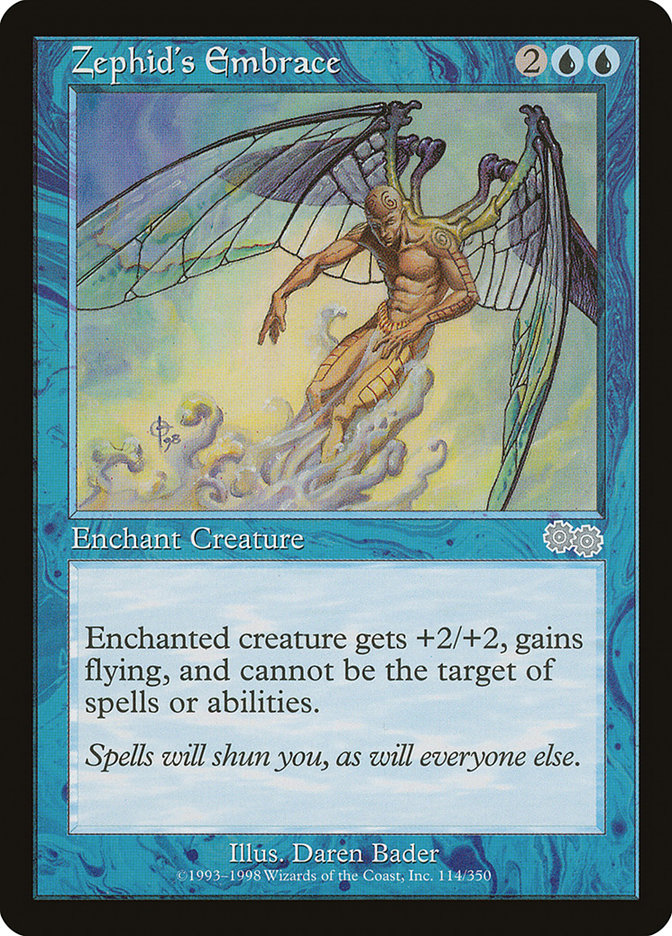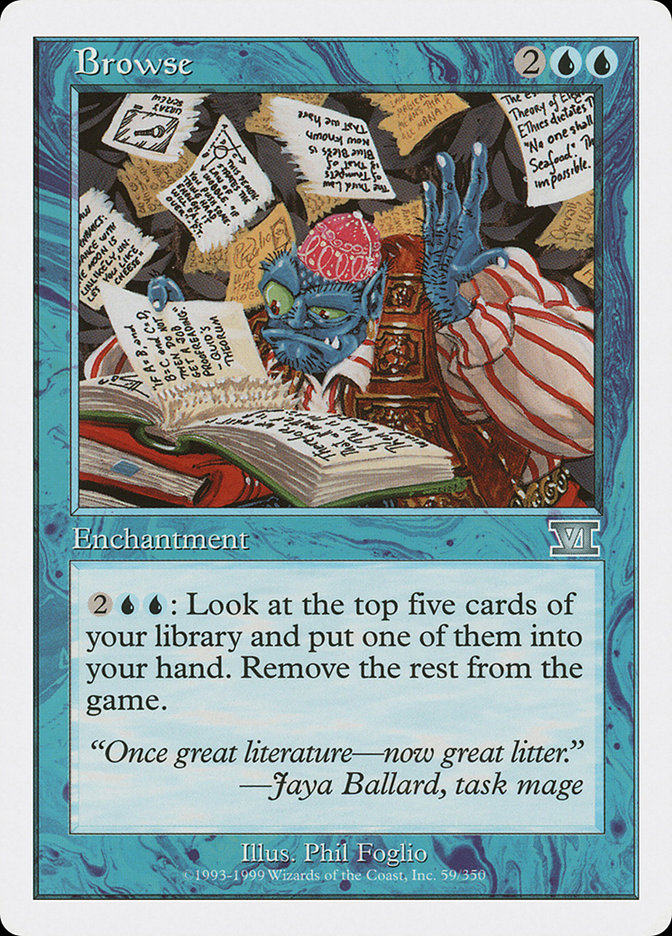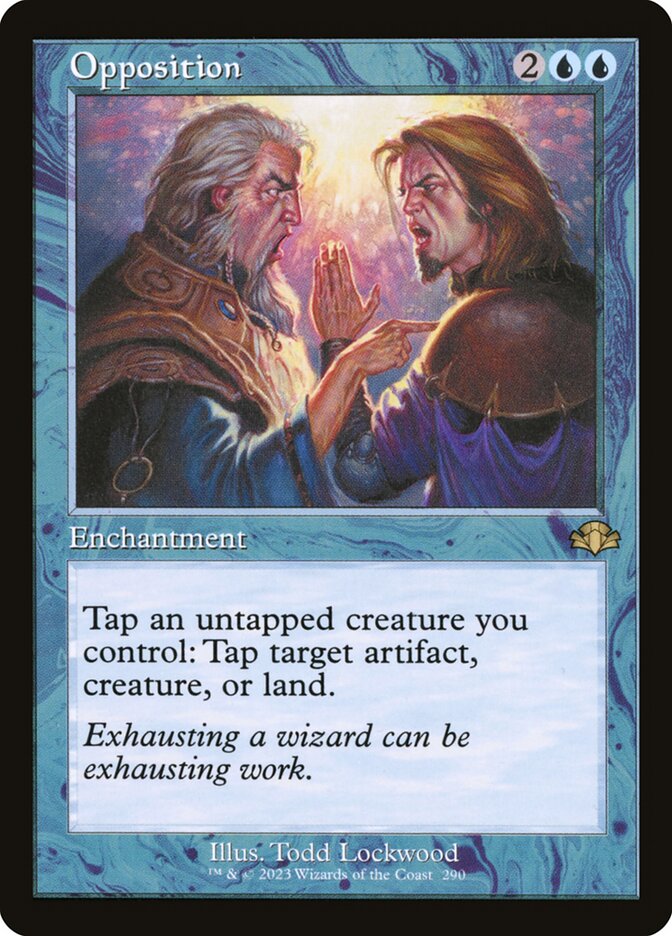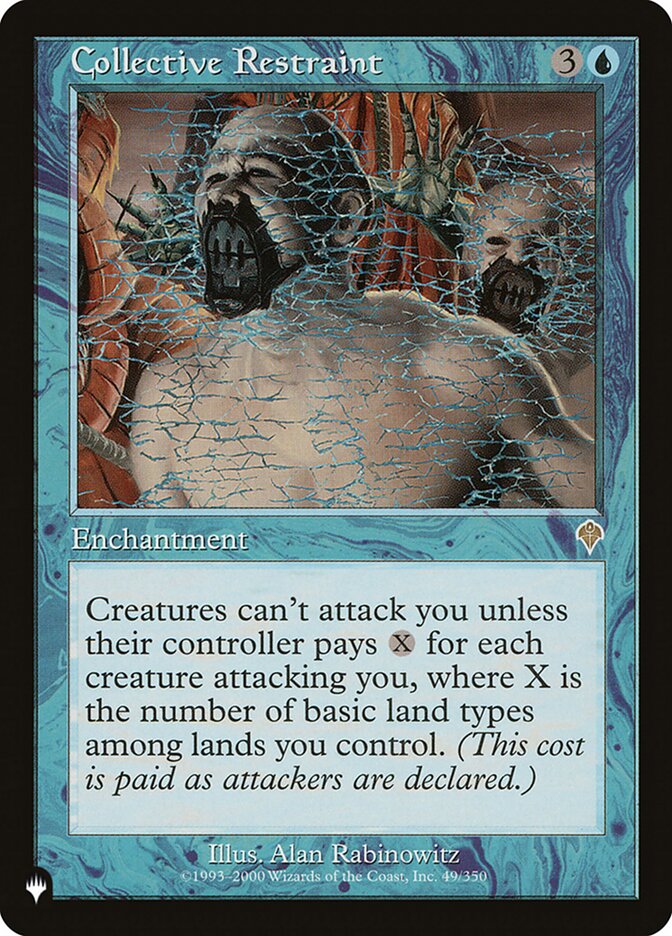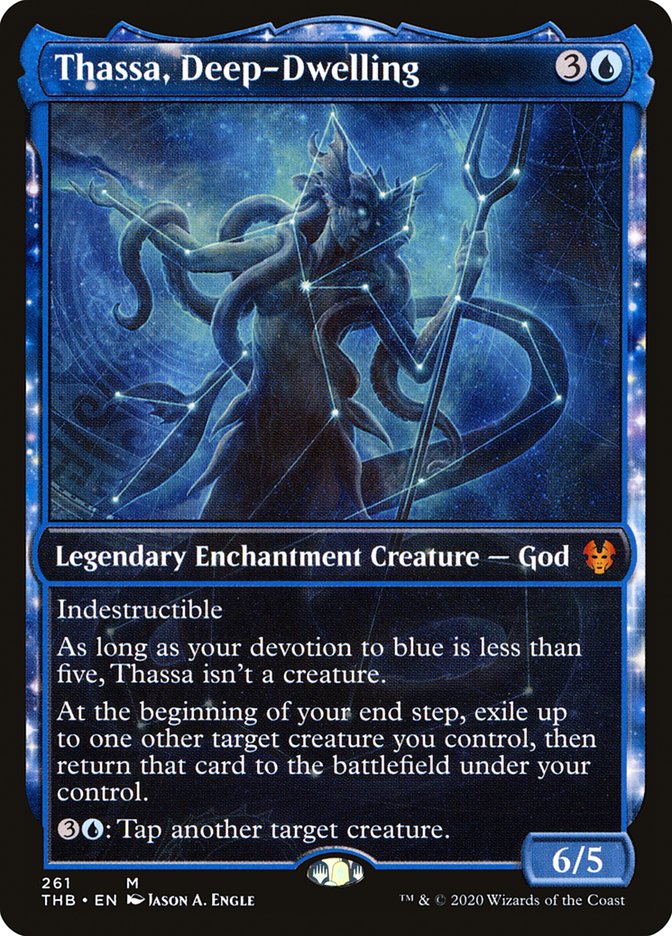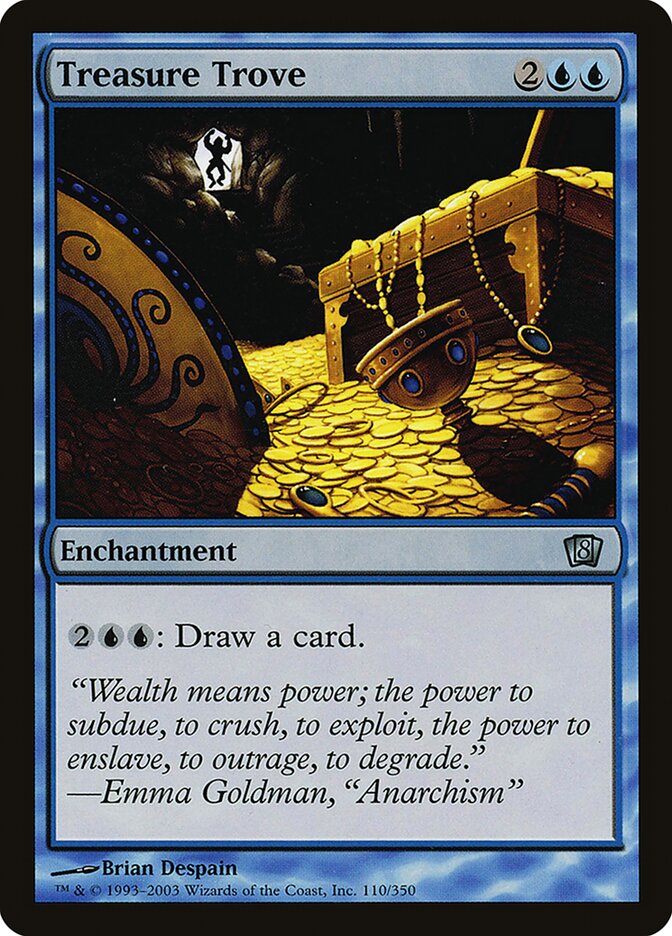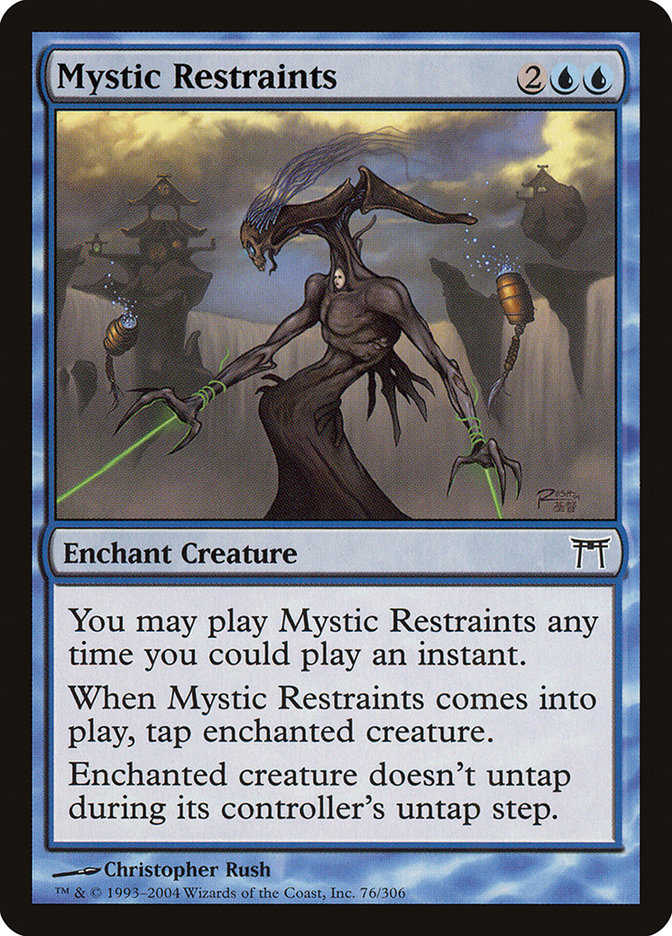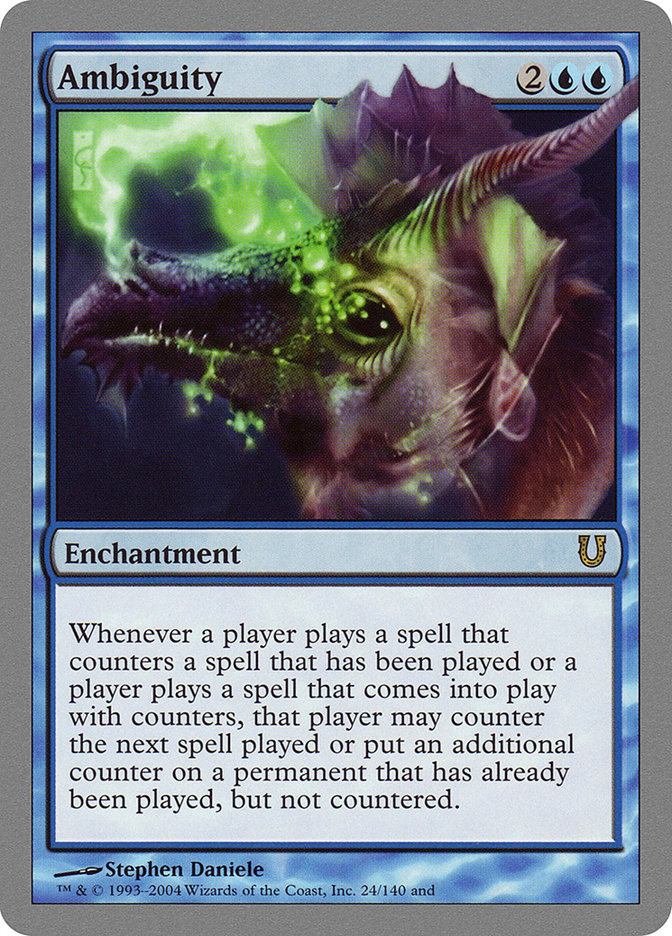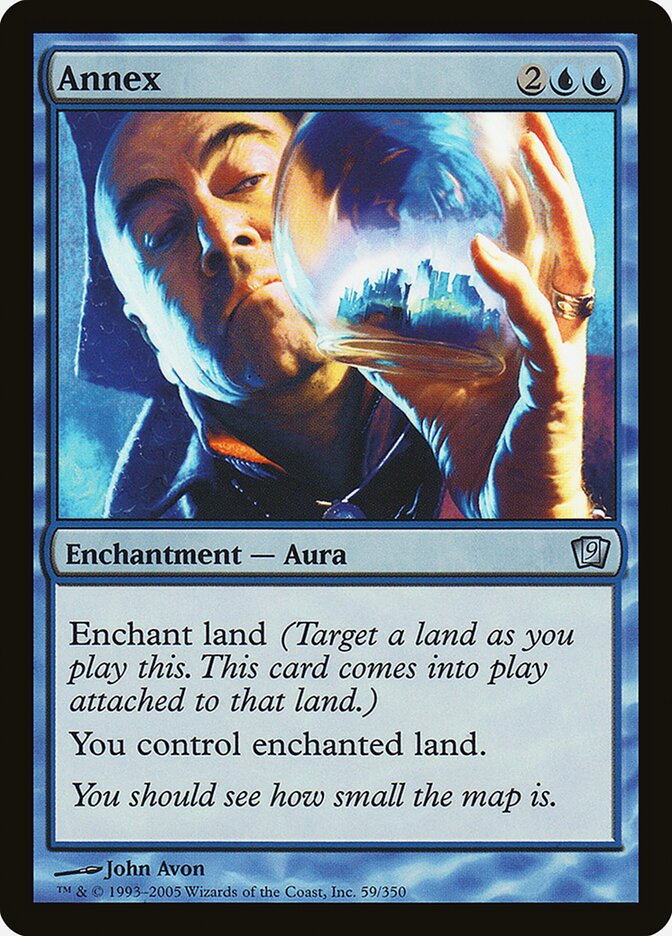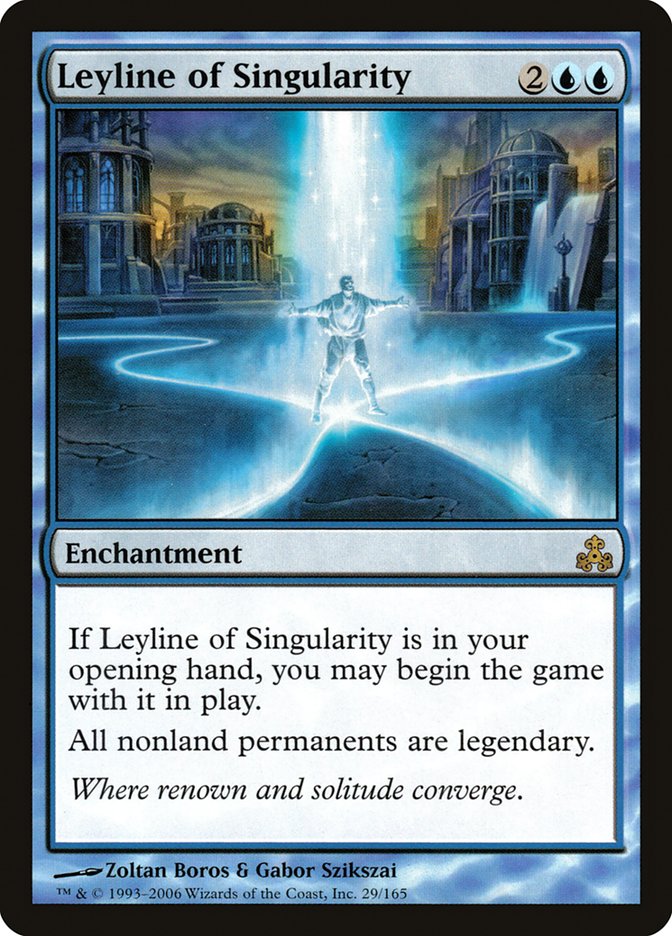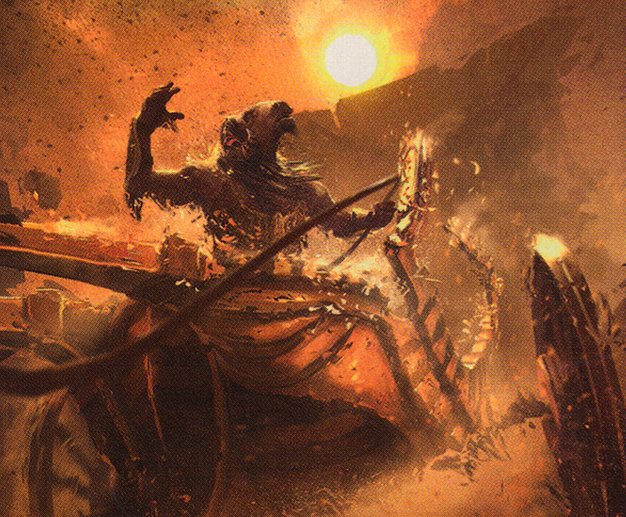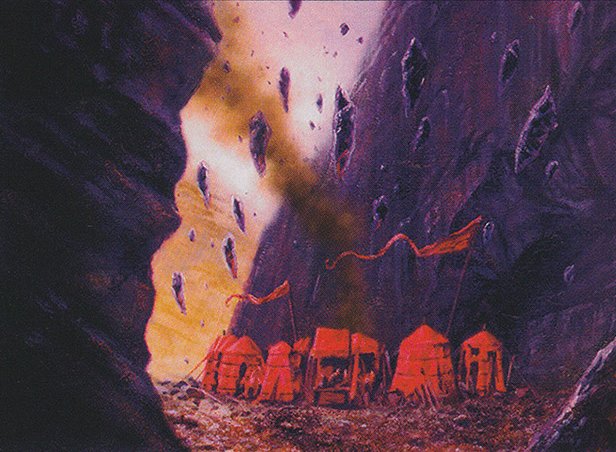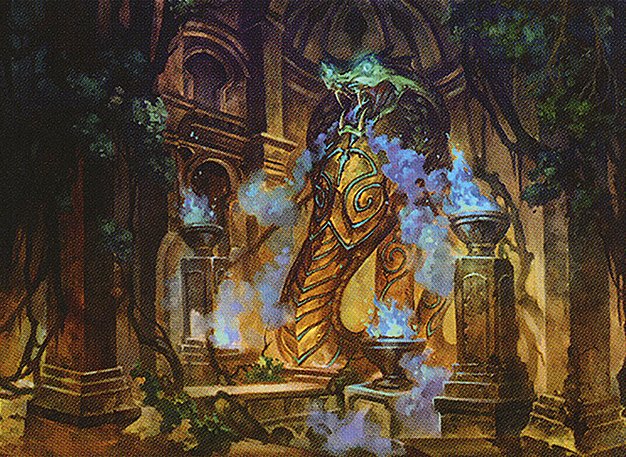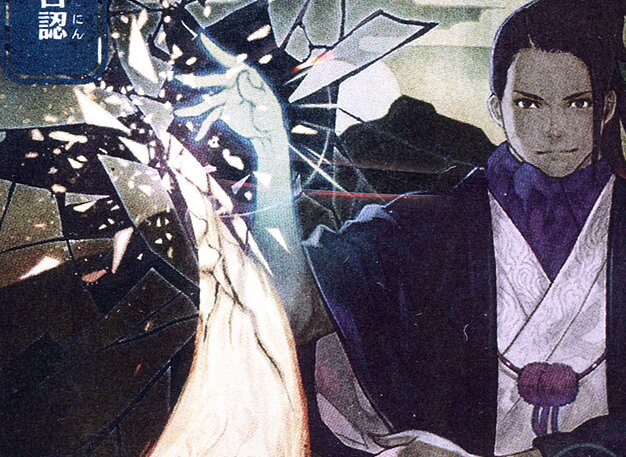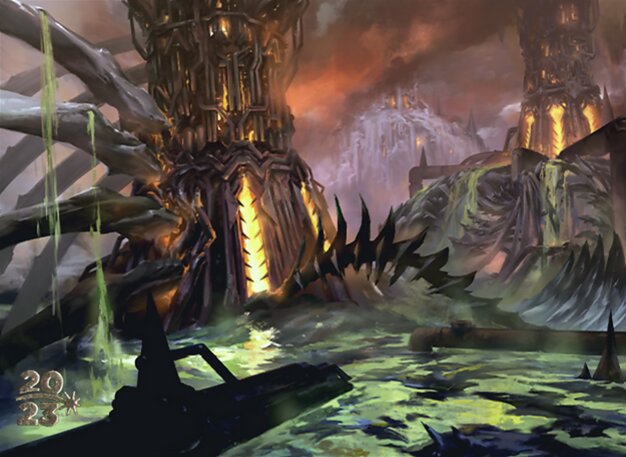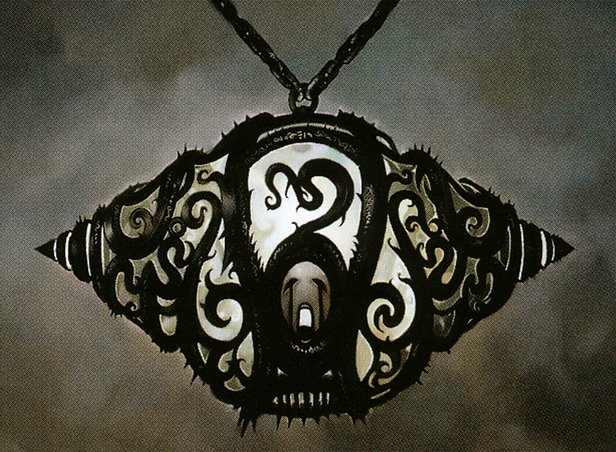Invoke Prejudice MTG Card
| Mana cost | |
| Converted mana cost | 4 |
| Rarity | Rare |
| Type | Enchantment |
| Released | 1994-06-01 |
| Set symbol | |
| Set name | Legends |
| Set code | LEG |
| Number | 62 |
| Frame | 1993 |
| Layout | Normal |
| Border | Black |
| Illustred by | Harold McNeill |
Key Takeaways
- Invoke Prejudice is known for its controversial art and name, prompting discussions about card representation in MTG.
- The card’s mechanic imprints an additional layer of strategy, despite it not being legal in many formats.
- Collectability and market value are influenced by its unique status, rarity, and the MTG community’s ethical standards.
Text of card
If opponent casts a Summon spell that does not match the color of one of the creatures under your control, that spell is countered unless the caster pays an additional o X where X is the casting cost of the Summon spell.
The Upsides of Invoke Prejudice
Card Advantage: Wielding the capacity to change the playing field drastically. Having Invoke Prejudice in your deck grants you the pressure and control that can lead to a significant card advantage. This can throw your opponent off balance, leading to potential easy wins.
Resource Acceleration: By imposing higher costs on your opponents’ creatures, Invoke Prejudice acts as a resource accelerator. This attribute complicates the game for your opponent, letting you capitalize on their slowed progress and accelerate ahead.
Instant Speed: Despite not being an instant itself, Invoke Prejudice can generate implications at instantaneous speed. Because the increased casting cost is constantly in effect, your opponent’s turn could quickly become a strategic nightmare. All of this can happen without using any additional mana from your resources.
Cons of Invoke Prejudice
Discard Requirement: Invoke Prejudice doesn’t come with a discard requirement directly. However, its high cost coupled with the need for an exclusively blue mana base may have you discarding other valuable cards in order to maintain the right ratio for this powerful card in the early game. This could leave you vulnerable or force you to compromise your gameplay strategy.
Specific Mana Cost: This card has a stringent and specific mana cost of all blue mana (UUUU). This specificity often ties you to a mono-blue deck, or at least to a deck heavily leaning towards blue. For players who prefer versatility or multi-color strategies, this card might not fit well into their deck.
Comparatively High Mana Cost: Invoke Prejudice requires a hefty investment of four mana. This is quite high when compared to other enchantments or artifacts in MTG. There are certainly more cost-efficient options on the market even within the blue deck sphere. Though its effect is potent, the high cost might limit its playability in some scenarios.
Reasons to Include Invoke Prejudice in Your Collection
Versatility: Invoke Prejudice, with its unique control element, can seamlessly slide into various deck archetypes. It has a particularly strong presence in mono-blue control decks and adds an extra layer of challenge for the opponent.
Combo Potential: The card’s innate ability to potentially limit the opponent’s creature play aligns well with other control strategies. It can be paired with cards that capitalize on opponents’ limited board presence, thereby leading to a formidable control combo.
Meta-Relevance: Invoke Prejudice shines in a meta filled with creature-heavy decks. Its ability to restrict opponents’ creature spells means it’s a great asset in a mid-range or control-oriented meta, making it a noteworthy addition to your collection.
Similar Cards
Invoke Prejudice, a remarkable card from Magic: The Gathering stirs a comparison with like-themed cards such as Imposing Sovereign and Thalia, Heretic Cathar. Much like Invoke Prejudice, these cards also deal with controlling opponent’s creatures by manipulating the game mechanics.
Imposing Sovereign is similar due to its mechanic of making enemy creatures enter the battlefield tapped. This effectively slows down opponent’s plans, a tactical advantage shared by Invoke Prejudice. However, unlike Invoke Prejudice, Imposing Sovereign doesn’t involve the taxing element in the gameplay.
Thalia, Heretic Cathar, is another card that has a similar effect. It not only causes creatures your opponents control to enter the battlefield tapped, but affects nonbasic lands too. Compare this to Invoke Prejudice – the dual nature of Thalia, Heretic Cathar offers a broader control spectrum.
Yet, despite various similarities with these cards, Invoke Prejudice stands apart due to its unique taxing effect that greatly hinders the opponent’s creature casting ability. It amplifies the strategic depth in the gameplay in Magic: The Gathering, reflecting its singular strength among similar-themed cards.
How to Beat Invoke Prejudice
In the world of Magic: The Gathering, Invoke Prejudice is an enchantment card that establishes a severe disadvantage for the opponents who don’t match the casting cost of their creatures with those on the user’s board. This card has been a game-changer, and knowing how to beat it can be of significant advantage to serious MTG players.
One strategy can be employing cheap creatures with diverse casting costs. This diverges from the Invoke Prejudice user’s deck strategy, thus minimizing its damaging effect. Creatures that can be cast for free or those with one mana can effectively bypass the hurdle set by Invoke Prejudice. Cards such as Ornithopter, Memnite, or Phyrexian Walker become worthy considerations.
Another approach is the use of uncounterable spells and creatures. Cavern of Souls is a choice land card that lets you cast creatures of a particular type that can’t be countered, thereby bypassing Invoke Prejudice’s effect. Furthermore, creatures with hexproof, like Sylvan Caryatid and Carnage Tyrant, are considerable additions due to their resistance to the Invoke Prejudice card.
In sum, dealing with Invoke Prejudice involves tactfully diversifying casting costs, using uncounterable spells, and employing creatures resistant to counter strategies. Being equipped with these tactics can significantly improve your game’s resilience against this potent card.
Understanding Invoke Prejudice in Magic the Gathering
When it comes to controversial and powerful cards in Magic the Gathering, few spark discussion quite like Invoke Prejudice. This card has a storied past, both in terms of its gameplay effects and its wider cultural implications. With its distinctive abilities, it holds a peculiar place in the game’s history and is a subject of interest for many players looking to understand its role in MTG’s evolution.
The Mechanics and Strategy Behind Invoke Prejudice
Originally printed in the Legends set, a heavily thematic and storied set from Magic the Gathering’s early days, Invoke Prejudice stands out due to its unique effect. The enchantment alters the game by requiring players to pay an additional cost for creatures that don’t share a color with a creature they control. This can significantly hinder opponents who rely on a diverse range of creatures. Strategy-wise, it encourages mono-colored deck building and offers a way to punish opponents’ multicolor strategies.
Historical Context and Gameplay Impact
The gameplay impact of Invoke Prejudice extends beyond its in-game effect. As with many cards in the early days of Magic the Gathering, Invoke Prejudice mirrored the high fantasy settings it drew inspiration from. However, the combination of its name, effect, and controversial artwork has led to discussions about the card’s place in the game. Over time, Wizards of the Coast has sought to address past issues in their card library, with Invoke Prejudice as a noteworthy example.
Invoke Prejudice and MTG Collectability
Despite, or perhaps because of, its controversy, Invoke Prejudice has become a collector’s item. Its limited print run coupled with its history has made it a sought-after card for those interested in the rarities of Magic the Gathering. Its value on the secondary market is as much a reflection of its infamy as it is a testament to the early design philosophies that shaped MTG.
Gameplay Alternatives and Strategic Shifts
Players interested in similar gameplay effects might seek alternatives to Invoke Prejudice, as it is banned in all official tournament formats. There are numerous other cards and strategies that can be utilized to control the battlefield and thwart multicolor decks without resorting to using such a contentious card. It’s important for players to adapt and find new ways to maintain competitive play within the evolving rules and social landscape of MTG.
Understanding MTG’s Evolving Social Responsibility
The presence of Invoke Prejudice in Magic the Gathering raises important questions about the social responsibilities of game developers and communities. Wizards of the Coast, the creators of MTG, have expressed their commitment to creating an inclusive environment. As the game continues to grow, both in player base and in cultural significance, understanding the impact of such cards leads to greater awareness and more thoughtful engagement with the game’s content.
Navigating The Complex Legacy of Past MTG Sets
Invoke Prejudice is just one example of the complexities involved in navigating the legacy of older MTG sets. As the game matures, the reconciliation of past designs with current values becomes an ongoing conversation within the MTG community. This includes recognizing the impact of card imagery, names, and effects on a diverse player base and ensuring that the spirit of the game remains true to its ideals of strategy, challenge, and camaraderie.
Mastering Modern Deck Building and Play Strategies
Regardless of the individual cards in question, mastering modern MTG gameplay is about understanding and applying complex deck building and strategies. Players learn to evaluate cards not only on their individual merits but also on how they fit into the broader metagame and their potential for creating powerful synergies. Invoke Prejudice’s historic nature serves as a lesson in the evolution of deck building techniques and the importance of keeping an eye on the shifting tides of MTG strategy.
Staying Informed on MTG’s Evolving Card Pool
Part of being an engaged MTG player is staying informed about the game’s ever-expanding card pool. This includes acknowledging and learning from the controversial aspects of its past, like Invoke Prejudice, while embracing the forward momentum of its future. As new sets are released and new cards are introduced, understanding the lineage of the game becomes a crucial part of being a well-rounded player.
Conclusion
In conclusion, navigating the rich landscapes of Magic the Gathering requires strategy, insight, and a bit of adventure. Whether you’re planning your next big win or fine-tuning your deck for maximum impact, there’s always room to elevate your game. As you continue to delve into the MTG universe, remember that it’s not just about the single triumphs but the continuous journey towards mastery. We invite you to keep exploring this fascinating world, discovering new techniques, and unearthing valuable cards to ensure your next match is more than just a game, but a Big Score. Ready to level up your play? Join us to learn more and become the ultimate MTG champion.
Cards like Invoke Prejudice
Invoke Prejudice, a remarkable card from Magic: The Gathering stirs a comparison with like-themed cards such as Imposing Sovereign and Thalia, Heretic Cathar. Much like Invoke Prejudice, these cards also deal with controlling opponent’s creatures by manipulating the game mechanics.
Imposing Sovereign is similar due to its mechanic of making enemy creatures enter the battlefield tapped. This effectively slows down opponent’s plans, a tactical advantage shared by Invoke Prejudice. However, unlike Invoke Prejudice, Imposing Sovereign doesn’t involve the taxing element in the gameplay.
Thalia, Heretic Cathar, is another card that has a similar effect. It not only causes creatures your opponents control to enter the battlefield tapped, but affects nonbasic lands too. Compare this to Invoke Prejudice – the dual nature of Thalia, Heretic Cathar offers a broader control spectrum.
Yet, despite various similarities with these cards, Invoke Prejudice stands apart due to its unique taxing effect that greatly hinders the opponent’s creature casting ability. It amplifies the strategic depth in the gameplay in Magic: The Gathering, reflecting its singular strength among similar-themed cards.
Cards similar to Invoke Prejudice by color, type and mana cost
Where to buy
If you're looking to purchase Invoke Prejudice MTG card by a specific set like Legends, there are several reliable options to consider. One of the primary sources is your local game store, where you can often find booster packs, individual cards, and preconstructed decks from current and some past sets. They often offer the added benefit of a community where you can trade with other players.
For a broader inventory, particularly of older sets, online marketplaces like TCGPlayer, Card Kingdom and Card Market offer extensive selections and allow you to search for cards from specific sets. Larger e-commerce platforms like eBay and Amazon also have listings from various sellers, which can be a good place to look for sealed product and rare finds.
Additionally, Magic’s official site often has a store locator and retailer lists for finding Wizards of the Coast licensed products. Remember to check for authenticity and the condition of the cards when purchasing, especially from individual sellers on larger marketplaces.
Below is a list of some store websites where you can buy the Invoke Prejudice and other MTG cards:
- eBay
- TCG Player
- Card Kingdom
- Card Market
- Star City Games
- CoolStuffInc
- MTG Mint Card
- Hareruya
- Troll and Toad
- ABU Games
- Card Hoarder Magic Online
- MTGO Traders Magic Online
See MTG Products
Legalities
Magic the Gathering formats where Invoke Prejudice has restrictions
| Format | Legality |
|---|---|
| Oldschool | Legal |
| Commander | Banned |
| Legacy | Banned |
| Oathbreaker | Banned |
| Vintage | Banned |
| Duel | Legal |
| Predh | Banned |
Rules and information
The reference guide for Magic: The Gathering Invoke Prejudice card rulings provides official rulings, any errata issued, as well as a record of all the functional modifications that have occurred.
| Date | Text |
|---|---|
| 2004-10-04 | In a multi-player game, it affects all opposing players. |
| 2004-10-04 | This ability triggers when the spell is cast. |
